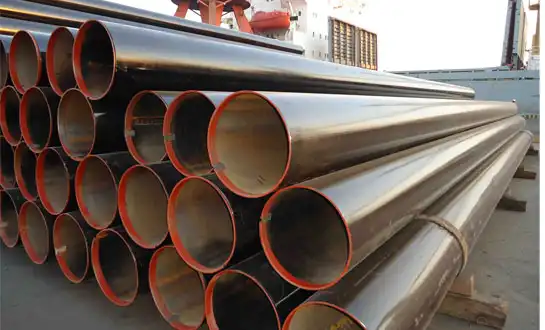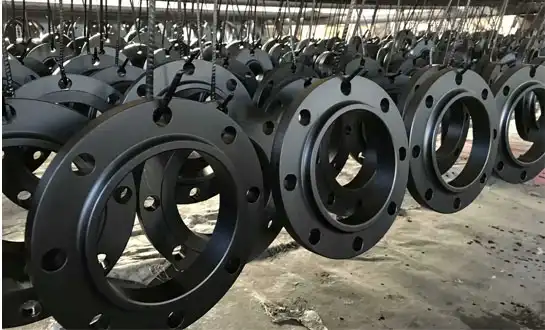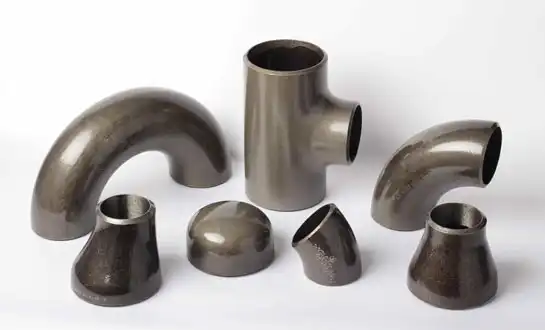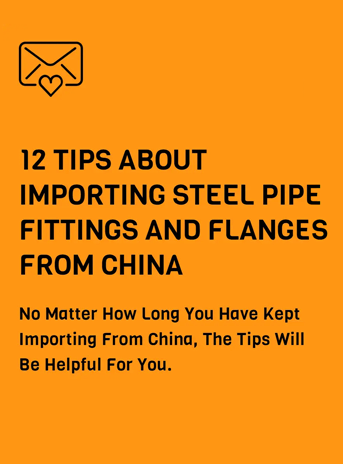How to Choose a Reliable Threaded and Coupled Pipe Supplier?
The provider you choose for threaded and coupled pipes is very important because it has a direct effect on the success of your project, the safety of the workers, and the long-term efficiency of your operations. Now that the business world is very competitive, it takes a lot of careful consideration to tell the difference between real quality and mediocre options. Finding a trustworthy threaded and coupled pipes seller can be hard, but this guide takes all the important things into account by looking at certifications, manufacturing skills, and customer service. Before you choose a supplier, make sure you know these things: they must offer consistent quality, fair prices, and reliable service throughout the lifecycle of your project. This is true whether you're looking for materials for oil and gas infrastructure, water distribution systems, or commercial construction projects.
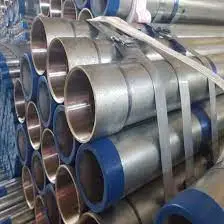
Understanding Quality Certifications and Compliance Standards
International Standards and Recognition
Consider whether a prospective supplier of threaded and coupled pipes follows globally accepted quality management procedures. An ISO 9001:2015 certification shows a supplier's dedication to continuous improvement and consistent quality control procedures. Additionally, export-specific certificates like GOST-R or SGS verification, which confirm that their threaded and coupled pipes satisfy regional technical requirements and safety standards, should be held by providers catering to international markets. These certificates offer verifiable proof that goods have passed independent third-party testing and meet global standards. Examine if the supplier's production procedures comply with industry-specific guidelines, such as ASTM, API, or ANSI regulations, which control the material composition, performance characteristics, and dimensional tolerances of threaded and coupled pipes used in a range of applications.
Material Traceability and Testing Protocols
Every batch of threaded and coupled pipes produced by reputable vendors has its origin, chemical makeup, and mechanical characteristics documented by extensive material traceability systems. Request supporting documents, such as mill test certificates, which offer comprehensive details on steel grade, heat treatment procedures, and mechanical testing outcomes, such as yield and tensile strengths. These certifications should be easily obtained from a reliable provider, indicating openness in production processes. Additionally, find out if the supplier regularly uses calibrated equipment for in-house testing to confirm coupling strength, thread integrity, and dimensional accuracy. To find internal flaws that could impair the functionality of threaded and coupled pipes, sophisticated providers spend money on non-destructive testing techniques like ultrasonic inspection. The supplier's dedication to providing flawless products is demonstrated by the comprehensiveness of these testing procedures.
Compliance with Environmental and Safety Regulations
Modern industrial procurement emphasizes environmental responsibility and worker safety. Evaluate whether potential suppliers comply with environmental management standards such as ISO 14001, ensuring they minimize their ecological footprint through waste reduction and energy efficiency. For threaded and coupled pipes destined for sensitive applications such as potable water systems, verify that the supplier uses materials and coatings that meet health and safety regulations. Additionally, assess the supplier's workplace safety record and their implementation of occupational health management systems. Suppliers who invest in employee training and maintain safe working environments typically demonstrate higher overall operational standards, which translates to better product quality and more reliable delivery schedules.
Evaluating Manufacturing Capabilities and Technical Expertise
Production Capacity and Technology Infrastructure
The manufacturing capabilities of a threaded and coupled pipes supplier directly influence their ability to meet your project requirements consistently. Assess the supplier's production capacity, including factory size, number of production lines, and annual output volume. Suppliers with substantial production capacity can accommodate both small orders and large-scale projects without compromising delivery timelines or quality standards. Modern suppliers utilize computer-controlled threading machines that ensure precise thread dimensions and consistent coupling tolerances, critical for leak-free connections in pressurized systems. Advanced manufacturing facilities also employ automated welding systems and heat treatment furnaces with precise temperature controls. When evaluating threaded and coupled pipes suppliers, request detailed information about their machinery and production processes.
Engineering Support and Customization Capabilities
Beyond manufacturing equipment, technical expertise includes the supplier's engineering know-how and capacity to offer tailored solutions. Reputable vendors use skilled engineers who are aware of the intricacies of various threaded and coupled pipes applications, ranging from corrosive chemical processing settings to high-pressure oil and gas transportation. Based on your operational characteristics, these professionals need to suggest suitable pipe specifications, thread types, and connection designs. Additionally, evaluate the supplier's ability to customize, since many projects require threaded and coupled pipes made of unique materials or with non-standard dimensions. These unique needs can be met by suppliers with internal design skills without requiring long lead times.
Quality Control and Inspection Procedures
Extensive quality control methods set outstanding suppliers apart from mediocre ones. Examine the supplier's quality control procedures, beginning with the examination of raw materials and ending with the final product's confirmation before shipping. Using multi-stage inspection procedures, top manufacturers inspect threaded and coupled pipes at crucial production locations with skilled quality control staff. The quality of the surface finish, coupling alignment, thread profile conformance, and dimensional accuracy should all be examined. Find out how many products are rejected by the supplier and how they handle non-conforming items. Make sure the supplier provides independent third-party inspection services so that the quality of the product may be confirmed before shipping.
Assessing Business Reliability and Service Excellence
Industry Reputation and Customer References
A supplier's image is a good way to tell how reliable they are and how good their products are. Check out possible suppliers by looking at how well they're known in the market, how long they've been in business, and whether they've been recognized by industry groups. Suppliers of threaded and coupled pipes who have been in business for decades and have shown they can keep quality standards high and build long-term relationships with customers. Ask for customer references and get in touch with these businesses to find out about their experiences directly. You should ask specific questions about how consistent the quality of the product is, how reliable the delivery is, and how quickly you respond to questions. Also, look at online reviews and forums for engineers where they can talk about their experiences with different sources.
Communication and Customer Support
Effective communication forms the foundation of successful supplier relationships. Evaluate the supplier's communication capabilities during initial interactions, noting their responsiveness to inquiries and clarity of information provided. Reliable suppliers maintain accessible customer service teams who understand both technical and commercial aspects of threaded and coupled pipes. Beyond initial sales interactions, assess the supplier's commitment to ongoing support throughout the project lifecycle. Suppliers who prioritize transparent communication invest in relationship management systems and assign dedicated account managers to key customers, distinguishing premium suppliers who view customers as long-term partners.
Pricing Structure and Payment Flexibility
While cost should never be the sole determining factor when selecting a supplier for threaded and coupled pipes, understanding the pricing structure is essential. Request detailed quotations that break down costs for materials, manufacturing, inspection, and logistics. Be wary of prices significantly lower than market averages, as they may indicate compromised quality. Reputable suppliers price their threaded and coupled pipes competitively while maintaining fair profit margins. Beyond unit pricing, examine the supplier's payment terms and their flexibility in accommodating different payment structures. Additionally, inquire about volume discounts and contract pricing for repeat orders.
Conclusion
Finding a trustworthy threaded and coupled pipes supplier means checking their business practices, quality certifications, and ability to make products. Suppliers with widely recognized standards, advanced production facilities, and a good reputation in the industry are more likely to provide you with high-quality materials and reliable service. Considerations of long-term partnership worth and consistent quality delivery are taken into account along with immediate cost concerns.
FAQ
1. What certifications should a reputable threaded and coupled pipes supplier possess?
Essential certifications include ISO 9001:2015 for quality management, region-specific standards like GOST-R or SGS for export compliance, and industry specifications such as ASTM, API, or ANSI. These certifications demonstrate the supplier's commitment to consistent quality control and international standards compliance. Additionally, environmental certifications like ISO 14001 indicate responsible manufacturing practices. Always request documentation proving current certification status and verify credentials through issuing organizations.
2. How can I verify the quality of threaded and coupled pipes before placing large orders?
Request sample products for physical inspection and testing, review mill test certificates documenting material properties and chemical composition, and arrange third-party inspection services for independent quality verification. Reliable suppliers provide comprehensive documentation, including dimensional reports and mechanical testing results. Consider placing small trial orders initially to evaluate product quality, packaging standards, and delivery reliability before committing to large-scale procurement contracts.
3. What lead times should I expect when ordering threaded and coupled pipes?
Lead times vary based on order quantity and customization requirements, typically ranging from two to eight weeks for standard products. Custom specifications requiring special materials or unique threading configurations may extend lead times to twelve weeks or longer. Discuss your project timeline during initial negotiations and request detailed production schedules. Established suppliers maintain an inventory of common sizes, enabling faster delivery for urgent requirements.
4. How do I assess whether a supplier can meet my specific technical requirements?
Present detailed specifications, including pipe dimensions, thread types, pressure ratings, and material grades, to prospective suppliers. Evaluate their technical responses, engineering support capabilities, and willingness to provide customized solutions. Request references from customers with similar applications and review the supplier's experience in your specific industry sector. Suppliers with strong technical expertise ask clarifying questions and provide comprehensive documentation supporting their product recommendations.
HEBEI RAYOUNG PIPELINE: Your Trusted Threaded and Coupled Pipes Manufacturer
At HEBEI RAYOUNG PIPELINE TECHNOLOGY CO., LTD., we are the best place to get threaded and coupled pipes of the highest quality that work perfectly in a wide range of industry settings. Our dedication to quality is shown by the fact that we are ISO 9001:2015 certified, GOST-R compliant, and SGS verified, which means that every product we make meets strict international standards. As one of the biggest companies that makes pipes and fittings, we use cutting-edge technology along with decades of experience to make threaded and coupled pipes that are guaranteed to have safe links, last a long time, and work reliably. Our wide range of products is used in many fields, from oil and gas to water distribution. We have specialized engineering teams ready to help you find the best solutions for your needs. Experience the RAYOUNG difference through our unwavering dedication to customer satisfaction, technical innovation, and manufacturing excellence. Contact us today at info@hb-steel.com to discuss your threaded and coupled pipes requirements and discover how our expertise can elevate your project.
References
1. American Society for Testing and Materials. (2023). Standard Specification for Pipe, Steel, Black and Hot-Dipped, Zinc-Coated, Welded and Seamless. ASTM International Publication.
2. International Organization for Standardization. (2022). Quality Management Systems: Requirements for Manufacturing Excellence. ISO 9001:2015 Standards Documentation.
3. Henderson, J.M., & Richardson, P.K. (2024). Industrial Pipe Systems: Selection, Installation, and Quality Assurance Practices. McGraw-Hill Engineering Publications.
4. American Petroleum Institute. (2023). Specification for Threading, Gauging, and Thread Inspection of Casing, Tubing, and Line Pipe Threads. API Standard 5B, Sixteenth Edition.
5. Wilson, D.R. (2023). Supply Chain Management in the Steel Pipe Industry: Quality Control and Supplier Evaluation Strategies. Industrial Press Manufacturing Series.
6. National Association of Pipe Fabricators. (2024). Best Practices for Threaded Connection Systems in Pressure Applications. NAPF Technical Guidelines Manual.

Need a quote? Want to see samples? Just say hello. We’re friendly. We’re fast. And we’re ready when you are.
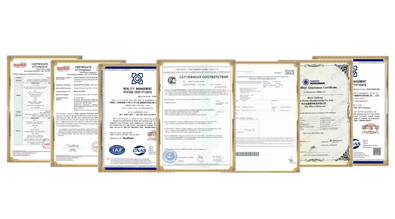
Welcome to RAYOUNG – Strong Pipes, Stronger Promise
